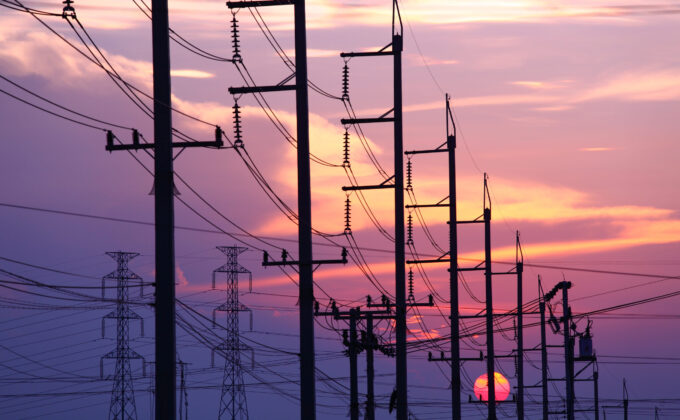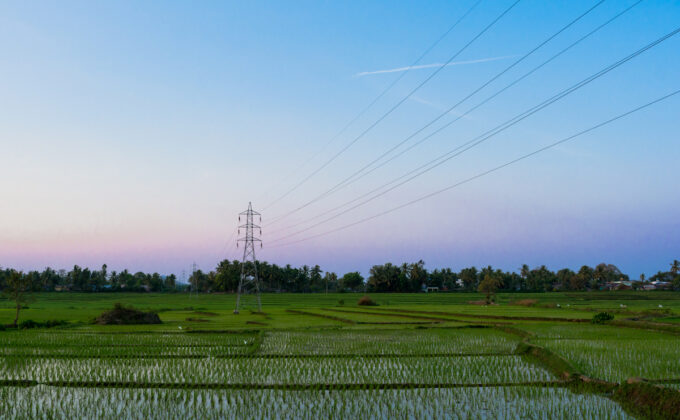
Blog
Incisive commentary from RAP experts
RAP experts keep their finger on the pulse of the energy sector and provide timely analysis of topics impacting stakeholders TODAY.
Filter >>
Content Filter:
September 9, 2020
Why would anyone finance another coal power plant in China?
Government officials and state-owned energy enterprises in China are currently debating another wave of coal power investment, despite a severely diminished business case for the technology. These companies that own and operate China’s coal fleet are already facing … View Summary +

August 25, 2020
EV charging infrastructure in Europe: A clear path for a competitive market
Electric mobility will play a key role in helping Europe’s transport sector recover from the current crisis. European and national recovery programmes, which are based on the European Commission’s Green New Deal, are already showing clear signs of this. View Summary +

August 18, 2020
Extended ETS outperforms carbon border adjustment in the power sector
- András Mezősi ,
- Zsuzsanna Pató ,
- László Szabó
The European Commission’s proposal to introduce a carbon border adjustment mechanism would not work as well as extending the EU Emissions Trading Scheme to reduce global emissions and further integrate energy exporting countries into the European power market. Carbon leakage… View Summary +

August 17, 2020
With the Shift Toward Electrification, Decoupling Remains Key for Driving Decarbonization
- Rachel Gold ,
- Jessica Shipley
States across the United States are increasingly prioritizing electrification of transportation and buildings to meet their decarbonization goals. Utilities are an important driver of this investment, so it’s critical that their business incentives be aligned with the public policy goals… View Summary +

July 16, 2020
Getting off gas: Future risks for energy poor households
If you are in pain, you go to a doctor who prescribes a painkiller. This cheap, proven and readily available treatment relieves your pain and temporarily solves your problem. However, if you continue to take the pills, you risk the… View Summary +

July 13, 2020
Striking the Balance in Energy Efficiency Regulation Between Utility Incentives and Customer Costs
- Janine Migden-Ostrander ,
- Martin Kushler
As Americans continue to face rising affordability challenges and struggle to pay their utility bills, consumer advocates are understandably concerned about keeping bills as low as possible. Energy efficiency is the lowest-cost resource and provides customers with the opportunity to… View Summary +

July 10, 2020
Early insights from India’s first month operating the real-time market
- Dheer Patel
India’s real-time market (RTM), launched on June 1st, 2020 on both the power exchanges after two years of public consultations by the Central Electricity Regulatory Commission (CERC). The RTM is a centralized market platform which runs a double-sided closed auction,… View Summary +

July 7, 2020
In a Time of Transition, Regulators Can Drive Cutting-Edge Cost Allocation Reform
- Jim Lazar ,
- Mark LeBel
The need for change in how we measure the cost of providing electric service by customer class is obvious to any attentive observer of the dramatic changes now underway in the electric utility industry. Electric Cost Allocation for a… View Summary +

July 6, 2020
低碳电力体系下配电系统运营商面临的挑战
- Philip Baker
向清洁能源的转变正在改变电力系统的性质。电气化程度不断提高,更积极的消费者以及消纳更多风能和太阳能的需求。传统消费者只能被动的消费电,而现代消费者越来越积极,能买卖能源服务、发电、而且调整行为为了支持电网的可靠性、低碳性和经济性。这些趋势正在影响配电网络的根本设计和运行。在许多国家随着电力部门的改革和市场化,分布式发电和其他能源资源,包括需求侧管理和分布式储能越来越重要。这些变化给配电系统运营商带来了广泛的挑战和机遇。 要成功驾驭这一转变,配电系统运营商将需要接受其角色和结构的变化,同时探索数字化和创新的世界,以管理配电网络。配电系统运营商在未来需要适应改变的领域,以确保成功实现能源转型。 睿博能源智库最近分析了这一主题在欧洲的情况和发展趋势,或许对中国和其他国家也有借鉴作用。 按照睿博能源智库的结论,随着分布式发电容量的增加,配电系统运营商将需要通过利用这些资源所提供的内在灵活性在管理配电网络方面发挥更积极的作用。为了实现这一目标,他们在采购和管理成千上万积极消费者的贡献时,需要发展维持供电安全和供电质量所需的技能和设施。这些发展也将改变他们与输电系统运营商的互动,因为两者的责任有时可能会重叠。决策者可以通过调查输电和配电系统运营商角色的潜在变化来缓解这种紧张,以确保有效的系统安全和管理。 政府部门最好可以激励配电系统运营商专注于反映消费者需求和能源政策重点的结果,奖励他们以最具成本效益的方式实现这些结果。这些政策还将解决运营商如何收回电网成本的问题。一个重要方面是重新考虑输配电价设计,以确保我们鼓励消费者的行为符合能源转型。 本文仅为简介,欲了解更多,可阅读… View Summary +

July 1, 2020
Agricultural demand-side management needs multi-sectoral interventions
- Mahesh Patankar ,
- Frederick Weston ,
- Robert Lieberman
Cheap agricultural electricity has bedevilled the Indian power sector for decades, but enhanced agricultural demand-side management won’t solve the problem alone Virtually everyone with a working knowledge of the Indian power sector will agree that one of the sector’s biggest… View Summary +

